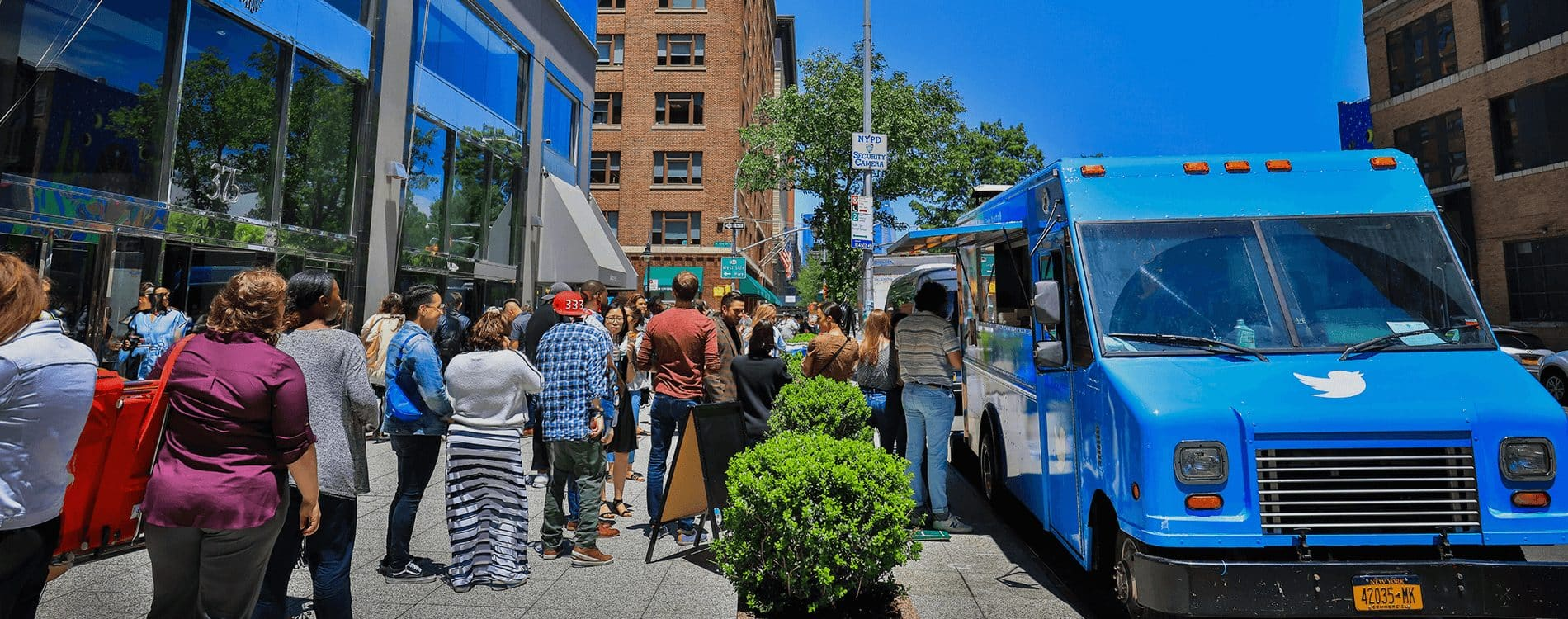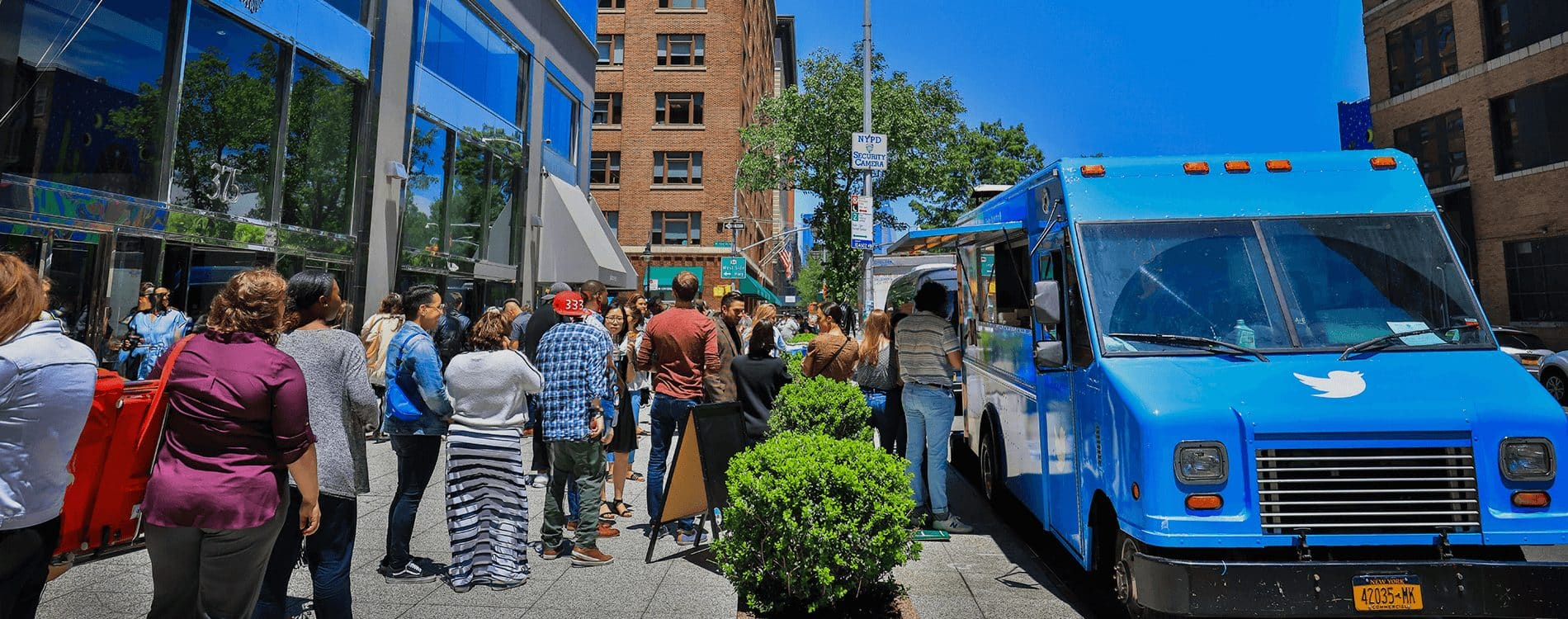Permits and Licenses 2026
Navigating Permits and Licenses 2026 for Food Trucks in Detroit: A Comprehensive Guide for DETFTA Members
Welcome to the Detroit Food Truck Association (DETFTA) blog. As Detroit’s food truck scene grows, understanding regulations is crucial. This guide for DETFTA members details essential permits and licenses for starting and operating a food truck in Detroit, referencing the latest city, county, and state guidelines as of November 2025. Compliance with these requirements not only avoids costly fines or shutdowns but also upholds the high standards of food safety and public health that define Detroit's culinary ecosystem. Whether you are a seasoned operator refreshing your knowledge or a newcomer plotting your first route, this resource will equip you with actionable insights. With this foundation in mind, let us dive into the essentials, from initial applications to ongoing renewals, all while highlighting how DETFTA can support your journey.
The Regulatory Framework: State, County, and City Layers
Operating a food truck in Detroit involves navigating a multi-tiered system of regulations. At the state level, the Michigan Department of Agriculture and Rural Development (MDARD) oversees food service licensing, emphasizing food safety under the Michigan Food Law and the FDA Food Code. Local enforcement falls to the Detroit Health Department (DHD), which issues city-specific licenses and conducts inspections. Wayne County provides supplementary oversight for health-related matters, though Detroit's operations are primarily city-governed.
Food trucks are classified as mobile food establishments, distinguishing them from fixed brick-and-mortar restaurants. This mobility introduces unique challenges, such as commissary requirements and transitory operations. In 2025, no major overhauls have reshaped these rules, but annual fee adjustments and inspection protocols remain in flux. DETFTA advocates for streamlined processes through our lobbying efforts, ensuring members stay ahead of changes via our monthly newsletters.
The key to success is early planning. The entire permitting process can span 3 to 6 months, including plan reviews, inspections, and approvals. Budget for $1,000 to $3,000 in initial fees alone, excluding vehicle modifications or insurance. By securing these documents proactively, you position your truck as a compliant, professional venture ready to serve Detroit's diverse neighborhoods.
Essential Licenses and Permits: What You Need
To legally operate, food truck owners must obtain a suite of licenses and permits. Below, we outline the core ones, focusing on their purpose and prerequisites.
I. Business License
Every food truck begins with a foundational business license, often called a business tax certificate. Issued by the City of Detroit's Business Licensing Center, this permit registers your operation as a legitimate entity, enabling tax compliance and zoning adherence.
Requirements include proof of business structure (such as sole proprietorship, LLC, or corporation), an Employer Identification Number (EIN) from the IRS, and a detailed business plan outlining your menu, routes, and operations. For LLCs, file articles of organization with the Michigan Department of Licensing and Regulatory Affairs (LARA), which takes about ten business days for approval.
This license is non-transferable and must be renewed annually. It serves as a prerequisite for all other permits, signaling to authorities that your venture is structured for longevity.
II. Food Service License
Mobile Food Establishment (MFE) vs. Special Transitory Food Unit.
The cornerstone of food truck operations is the food service license from the DHD. Two primary types cater to different setups: the Mobile Food Establishment (MFE) license and the Special Transitory Food Unit license.
An MFE license suits trucks that prepare or cook food on site but return to a licensed commissary daily for cleaning, restocking, and waste disposal. A commissary is a commercial kitchen approved by the health department, ensuring sanitary standards. You must carry a commissary verification form at all times, and your truck's exterior needs your business name and address in three-inch high letters. In contrast, this license fits self-contained units that operate statewide without daily commissary returns. These require onboard facilities like sinks, water storage, and waste tanks, plus submission of a notice of intent to operate at least four days before serving in any jurisdiction. They undergo two paid inspections per year, spaced across the operating season.
Both licenses expire on April 30 annually and require routine inspections. For ice cream trucks serving only pre-packaged items, a simplified approval process applies, bypassing full food service licensing but requiring DHD inspection and a business plate.
III. Public Health and Seller's Permits
Complementing the food service license, a public health permit from the DHD verifies compliance with sanitation codes. This involves demonstrating safe food handling, temperature controls, and pest management during an initial inspection. Risk levels influence scrutiny: high-risk operations (like raw meat preparation) face more rigorous checks.
The food seller's permit, issued free by the Michigan Department of Treasury via their online portal, authorizes the collection of the state's six percent sales tax on prepared foods. Exemptions apply to grab-and-go items without utensils. Apply online in minutes with your business details; no renewal is needed unless changes occur.
IV. Certifications: Food Protection Manager and Food Handler
Human capital is key to safety. At least one staff member must hold a Certified Food Protection Manager (CFPM) certification, accredited by ANSI standards like ServSafe. This five-year credential covers illness prevention, cross-contamination avoidance, and HACCP principles. Online courses cost $50 to $150, with in-person options slightly higher.
Additionally, all employees handling food need a food handler's certificate, valid for three years and capped at $15 per person under state law. These ensure your team adheres to hygiene protocols, reducing liability.
V. Fire Safety and Vehicle-Related Permits
Detroit's fire code mandates inspections for trucks with cooking elements, propane tanks, or generators. Contact the Detroit Fire Department Fire Marshal Division for an enclosed unit review, focusing on suppression systems, extinguishers (Class K and ABC), and exhaust vents. This is especially vital for grills or fryers.
Vehicle specifics include Michigan registration, commercial auto insurance ($1 million minimum liability, listing the city as additional insured), and compliance with traffic ordinances. For street vending, flashing lights and stop signs are required on ice cream or pushcart variants.
Costs Breakdown: Budgeting for Compliance
Fees vary by license type and risk level, but transparency aids planning. Below is a table summarizing estimates for Detroit based on official schedules.
Total startup permitting costs often range from $800 to $2,500, excluding commissary agreements ($200 to $500 annually) or insurance premiums ($2,000 to $4,000 yearly). DETFTA members receive discounted training bundles for CFPM courses, saving up to 20 percent.
Step-by-Step Application Process
Form Your Business: Secure EIN (free, instant via IRS) and register with LARA ($50 fee). Draft a business plan including a menu and routes.
Plan Review Submission: Before building or buying, submit to DHD: floor plans, equipment specs, standard operating procedures (SOPs), menu, and $197 fee. Approval takes 30 days; unapproved builds double fees.
Commissary Agreement: For MFEs, contract with a licensed kitchen and obtain a verification form.
Certifications: Enroll staff in CFPM and handler training; certificates must accompany applications.
License Applications: Apply for food service (MFE/STFU) via the DHD portal or in person at 100 Mack Avenue. Include fees, vehicle registration, and SOPs. Schedule initial inspection post submission.
Inspections and Approvals: Pass health ($249 safety check) and fire reviews. For STFUs, file intent notices per location.
Seller's Permit: Register online with the Treasury; integrate POS systems for tax tracking.
Operational Launch: Affix signage, stock documents onboard, and notify DHD of routes.
Special Considerations for Detroit Operations
Detroit's urban fabric shapes unique rules. Vending is prohibited on residential streets, with designated zones near parks, markets, and events like Eastern Market or the Detroit Riverfront. Secure written permission for private lots; violations incur $500 fines.
Zoning restricts proximity to schools (500 feet) and brick and mortar eateries (100 feet in some areas). Events require temporary licenses ($73 base), submitted ten days prior. For festivals, coordinate with organizers for shared inspection costs.
Sustainability matters: Waste disposal must route to approved facilities, and grease traps must comply with sewer ordinances. DETFTA's 2026 initiative pushes for expanding vending corridors, informed by member feedback.
Renewal, Compliance, and DETFTA Support
Most licenses are renewed by April 30, with applications mailed 60 days prior.
Late fees add 25 percent; non-renewal halts operations. Schedule routine inspections (biannually for MFEs) and maintain logs for temperatures, cleaning, and pest control. Violations trigger re-inspections ($90 each) or suspensions.
Stay compliant through training: DETFTA partners with ServSafe for member exclusives. Our hotline (313 DET FTA1) connects you to experts for troubleshooting.
In conclusion, while the permit maze may seem daunting, it safeguards the innovation driving Detroit's $50 million food truck economy. By mastering these requirements, you contribute to a safer, more vibrant scene. Join DETFTA today for advocacy, networking, and resources that turn red tape into road maps. Savor the grind, serve with pride, and keep Detroit rolling.



